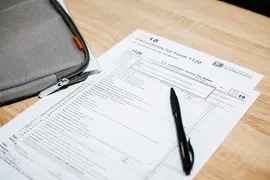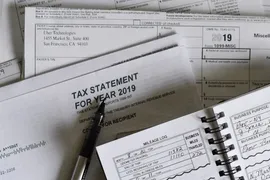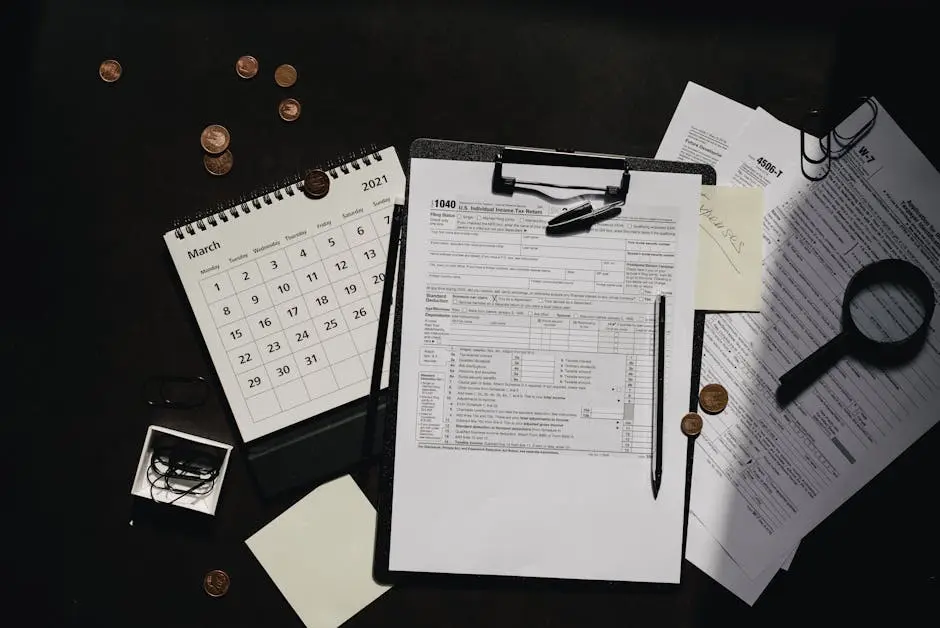Understanding what might lead to an IRS audit can help taxpayers prepare and avoid potential pitfalls. This FAQ will guide you through the most common triggers that may raise a red flag for the IRS, ensuring you have the knowledge you need to stay compliant.
Unreported Income
One of the main reasons the IRS may audit you is if you have unreported income. This can include income from freelance work, side jobs, or even cash payments that aren’t reported on your tax return.
Unreported income is a significant red flag for the IRS. It’s essential to remember that any money earned is generally considered taxable, whether you receive it in a paycheck or cash in hand. Ensure that you keep thorough records of all income sources.
If you’ve earned money through gig economy platforms or self-employment, it’s crucial to report this income accurately. The IRS has various ways to track these earnings, and a discrepancy can lead to scrutiny. Make it a practice to track all your income diligently.
Moreover, don’t forget about bartering or trades. Even if you didn’t receive cash, the value of goods or services exchanged must be reported. Ignoring this can lead to unexpected audits.
In short, the best practice is to report all income. Honest and clear records can protect you from heightened scrutiny from the IRS. If in doubt, seek professional advice or guidance.
Discrepancies in Reporting
If the information on your tax return doesn’t match the data the IRS receives from third parties, such as employers or banks, you could be flagged for an audit. Always ensure your reported figures align with your W-2s and 1099s.
Even minor discrepancies can lead to a thorough examination. For instance, if you report a lower income than what your employer has submitted, it sends an immediate signal to the IRS, even if the difference is just a few dollars.
It’s vital to double-check your forms before submission. Spelling your name correctly, using accurate Social Security numbers, and ensuring figures match are paramount. An innocent mistake can spiral into an unwanted audit.
In addition, if you’ve received any tax forms such as 1099s for freelance work and fail to include that income, it establishes a mismatch with what the IRS has on file. Always reconcile your records against these forms to safeguard yourself.
High Deductions Compared to Income
Claiming excessively high deductions relative to your income can trigger an audit. The IRS may scrutinize these figures, especially if they don’t seem typical for your income bracket.
For example, if you declare an income of $50,000 and list deductions that total $40,000, this ratio may raise eyebrows. It could indicate that you’re trying to lower your taxable income unnaturally.
Additionally, certain deductions such as business expenses should be well-documented. If your claimed expenses seem too high compared to typical standards in your industry, it may prompt further inquiries.
The key is to ensure your deductions are legitimate and properly recorded. Gather receipts, invoices, and any necessary documentation to support your claims. This preparation can be immensely helpful in case of an audit.
Random Selection
Sometimes, individuals are just randomly selected for an audit. While this isn’t about your tax practices, it’s always best to have your records in order, just in case.
The IRS employs a method called the Discriminant Function System (DIF), which chooses a random pool of tax returns for audits. While it may feel disheartening, these selections can arise without any direct implication regarding your tax honesty.
That said, being prepared can save you a lot of stress. Maintaining organized financial records and being clear about your tax reporting will equip you to handle unexpected audits more efficiently.
While a random selection is beyond your control, you can control how ready you are to respond. So, instead of worrying, focus on staying organized and informed to lessen any anxiety surrounding potential audits.
Final Thoughts on IRS Audits
By being aware of these common triggers, you can take steps to minimize your risk of an IRS audit. Staying organized, honest, and informed about tax regulations will not only make filing easier but also help you navigate the complexities of your tax responsibilities with confidence.





Share